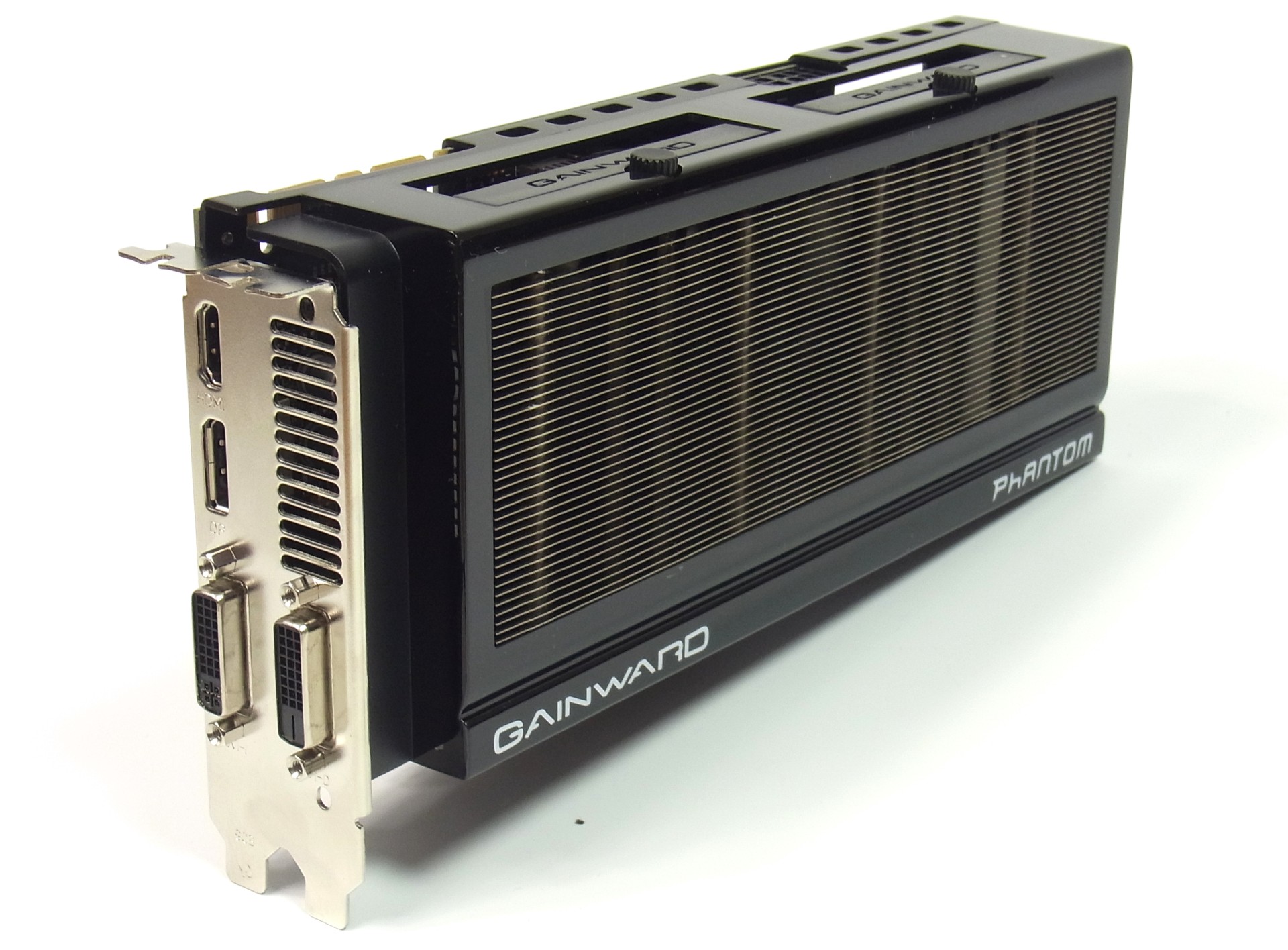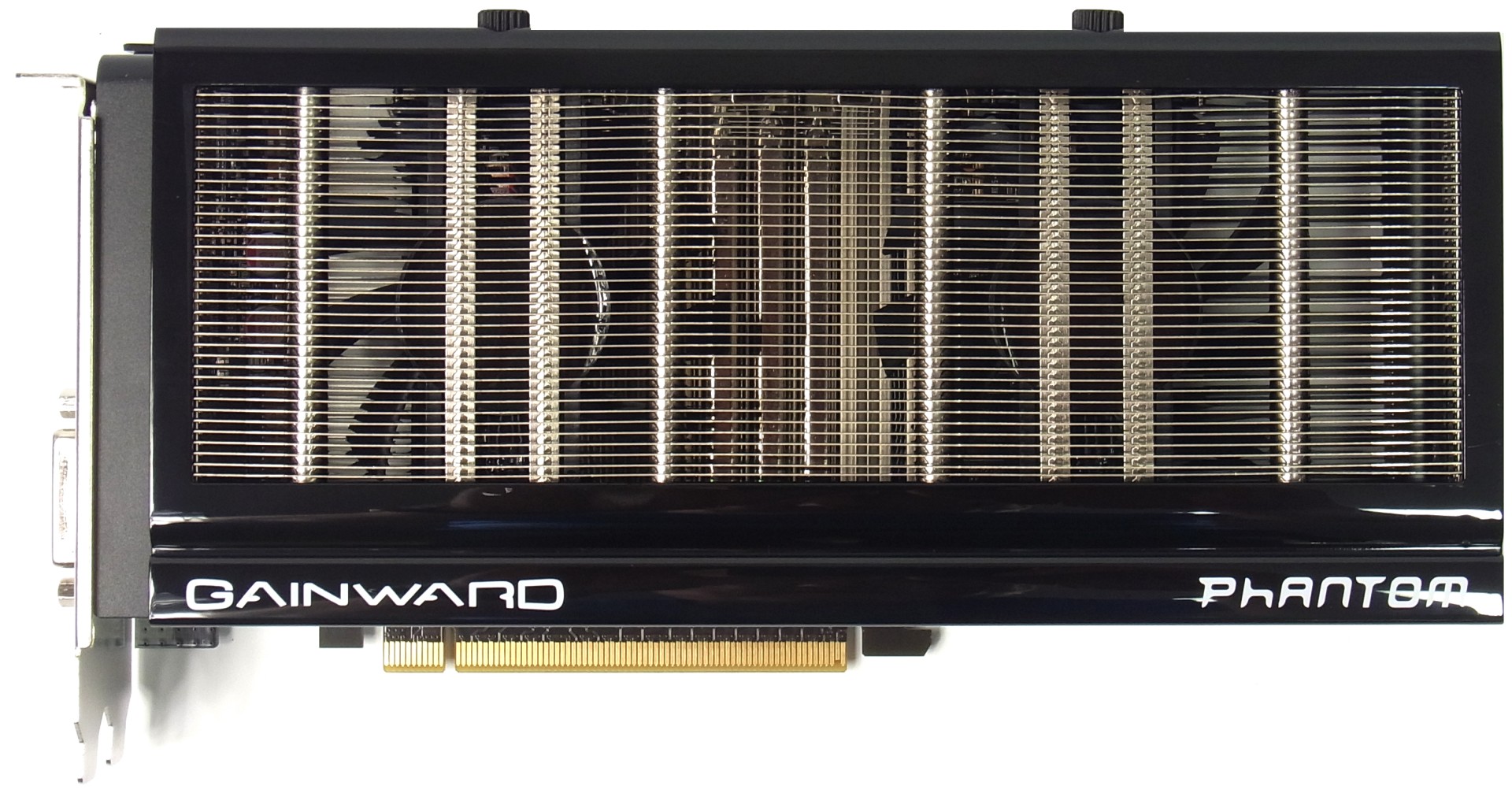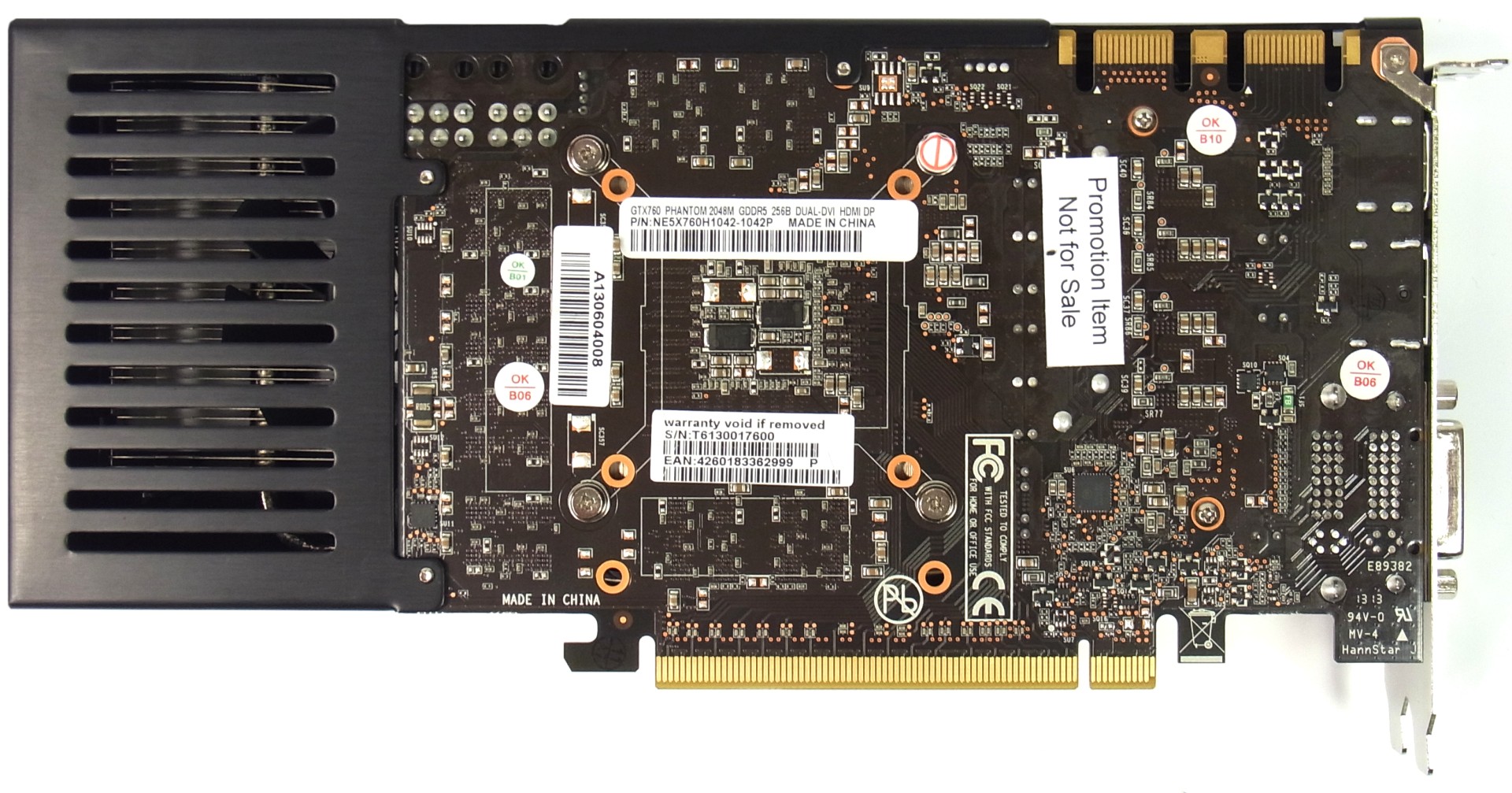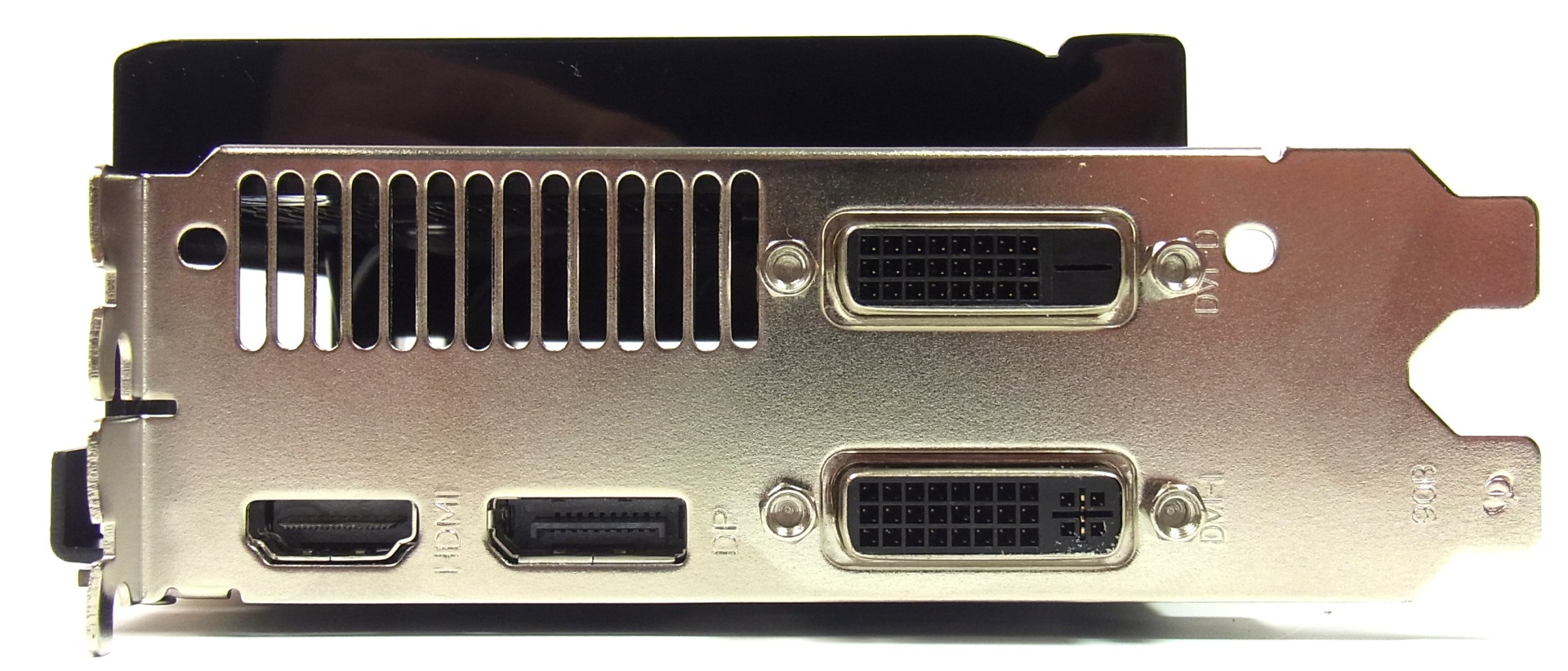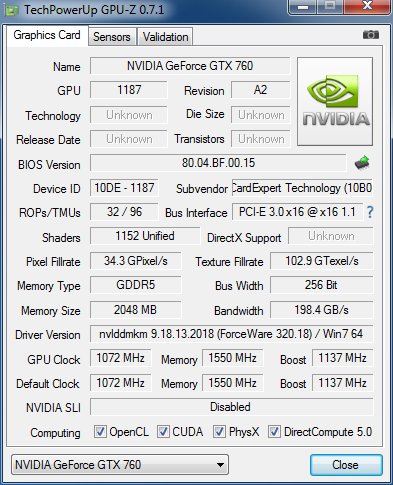GeForce GTX 760 Review: GK104 Shows Up (And Off) At $250
With its last graphics card introduction until the end of Fall, Nvidia isn't trying to impress anyone with groundbreaking performance. Rather, the company is pulling better-than GeForce GTX 660 Ti-class frame rates to a $250 price point, creating value.
Gainward GTX 760 OC Phantom
Short and stubby. That’s our first impression of Gainward's submission. Indeed, it occupies a full three expansion slots. And its PCB is the same as the GeForce GTX 670 and 760 reference configuration. Aside from the cooler, this card is also identical to Palit’s GTX 670 OC Jetstream, down to the frequencies.
| Technical Specifications And Dimensions | |
|---|---|
| GPU Clock | 1072 MHz |
| Boost (according to BIOS) | 1137 MHz |
| Attainable Maximum Boost Under Load | 1215 MHz |
| Height | 120 mm / 4.72 inches |
| Length | 240 mm / 9.44 inches |
| Width (Cooler Side) | 48 mm / 1.89 inches (<= triple-slot) |
| Width (PCB side) | 4 mm / 0.16 inches (no backplate, frame only) |
| max. Weight | 640 g / 22.57 ounces |
| Fans | 2 x 85 mm / 3.34 inches (fan diameter) |
This cooler quite obviously pays homage to the tradition of Phantom cards past. After all, once upon a time, Gainward's design was considered the one to beat. Two removable fans sit between the horizontally-oriented heat sink fins and PCB. They don’t blow the air up through the cooler, but rather draw it downward, providing a certain amount of airflow to the board itself. Although Gainward operates its memory slightly faster than MSI and Gigabyte at 1550 MHz, the chip packages don't make contact with a heat sink.
Two six-pin auxiliary power connectors ride atop the card, with two SLI interfaces close to the I/O shield. As mentioned, the two fans can be removed easily, making them easy to clean.
Like MSI's submission, the horizontally-aligned cooling fins direct exhaust out the card's front and back. Again, air has to escape through a half-height grille on the I/O bracket. Four nickel-plated pipes help facilitate thermal transfer, conducting the heat to the cooler above.
The I/O bracket looks exactly the same; you get dual-link DVI-D, dual-link DVI-I, HDMI, and DisplayPort.
Get Tom's Hardware's best news and in-depth reviews, straight to your inbox.
Current page: Gainward GTX 760 OC Phantom
Prev Page MSI GTX 760 OC Gaming Next Page Palit GTX 760 OC Jetstream